The Most Powerful Way to Stand Out: Effective Listening
In today’s workplace, we’re surrounded by constant signals — Slack notifications, video calls, email threads, and AI alerts. Yet despite all this communication, we often don’t truly hear or comprehend much of what’s being said. Ironically, in an age of nonstop connection, one of the most powerful ways to stand out is simply to listen well.
What many underestimate is that effective listening isn’t just a “nice-to-have” soft skill — it’s a career differentiator and a strategic advantage in the evolving world of work.

Why Listening is Undervalued (But Critical for Employees)
Hearing ≠ Listening
All too often, we confuse hearing with listening. Hearing is passive. It’s what happens when sound waves hit our ears. Listening is active, involving focus, empathy, and intent.
When employees practice listening — really listening — they build trust, reduce misunderstandings, and increase influence in their teams and projects.
The Cost of Not Being Heard
- A recent “State of Employee Listening” report revealed that many companies claim to listen, yet many employees still feel unheard.
- Communication problems are estimated to cause 70% of workplace errors.
- According to a data roundup on active listening, training in listening skills can improve team productivity by ~20%.
- In another source, high-quality listening has been linked to reducing workplace loneliness, boosting employee engagement, and creating psychological safety.
Put simply: when employees feel ignored, it leads to low morale, misalignment, and reduced innovation.
The Future of Work Demands Better Listening — From Everyone
Trends That Raise the Stakes
- Hybrid & remote work. With conversations spread across time zones, chat threads, and asynchronous tools, it’s easier than ever for messages to get lost.
- Cross-cultural and cross-functional teams. Misinterpretations multiply when people bring different norms, assumptions, and communication styles.
- Information overload. With data, alerts, notifications, and content streaming in, distractions are everywhere.
- High-performing organizations are built on empathy, inclusion, and psychological safety. Companies increasingly value environments where all voices are heard — and that requires listening as a foundation.
As Deloitte puts it: “active listening in the workplace is a capability, and workforce listening must be continuous.”
In short: the most valuable employees in the future will be those who can filter the noise, tune in to others’ perspectives, and connect across distance and complexity.

Listening as a Career Advantage, Not Just a Soft Skill
How Good Listeners Rise
- They earn trust faster: when people feel listened to, they open up, share ideas, and collaborate more readily.
- They spot opportunities and problems earlier: listening helps you catch discrepancies, unspoken needs, and signals others miss.
- They stand out in teams: while many people talk, few truly listen. Over time, colleagues and managers notice who listens well.
- They influence with more care: persuading others becomes less about force and more about connection.
So while effective listening training is often seen as just another personal development offering, in reality, it supports career growth, team influence, and workplace impact.

Key Takeaways from Effective Listening Training
Here are three practical habits learners can begin applying immediately following training:
- Be Present, Not Preparing
Don’t spend the moment thinking about your response. Instead, focus fully on the speaker — their words, tone, and nonverbal cues.
- Pause & Reflect Before Responding
Use a short pause (2–3 seconds) before asking a question or responding. This gives your brain time to appreciate what was said and signals respect.
- Clarify with Paraphrase & Questions
Say back what you believe you heard (e.g., “What I hear you saying is …”) and then ask a clarifying question. This reduces misinterpretation and deepens understanding.
These are just a few of the strategies in our course Tuned in Teams: Effective Listening, a structured, hands-on approach to mastering listening in real work settings.
In a world where everyone competes to be heard, the most powerful move is often to be the one who listens. For employees who want to differentiate themselves, build influence, and succeed in the future of work, effective listening training isn’t optional; it’s essential.
Ready to Level Up?
Discover our effective listening training, designed to help your teams develop skills that last long after the course concludes. Because in a noisy world, those who listen are the ones who get understood, trusted, and remembered.
Contact us for a demo of Tuned in Teams: Effective Listening to future-proof your workforce.

Frequently Asked Questions About Effective Listening
What is Effective Listening Training?
Effective Listening Training is a structured program that helps employees move beyond passive hearing to active listening. It equips participants with tools to stay present, ask clarifying questions, and respond thoughtfully in both in-person and virtual interactions.
Why is effective listening such an important workplace skill?
Research shows that poor communication accounts for nearly 70% of workplace errors. When employees listen effectively, they reduce misunderstandings, strengthen collaboration, and improve trust across teams.
Who can benefit from Effective Listening Training?
Everyone. While leaders gain tools to support their teams better, employees at all levels benefit by improving their collaboration, influence, and ability to contribute meaningfully.
How does Effective Listening Training support career growth?
Strong listeners are often viewed as reliable, empathetic, and trustworthy — qualities that help employees stand out for promotions, project ownership, and leadership roles.
What skills are taught in Effective Listening Training?
Participants practice presence, reflective listening, asking clarifying questions, and managing distractions. They also learn how to apply these skills in hybrid and digital workplaces.
How is this different from general communication training?
While most communication courses focus on how to express yourself, Effective Listening Training flips the lens: it helps employees focus on understanding others first, creating stronger mutual outcomes.
Summary
This article explores how effective listening is no longer a “soft skill” but a core competency for employees in the modern workplace.
- It outlines the hidden costs of poor listening, from miscommunication and disengagement to lost productivity and turnover, and explains why training is necessary to build stronger collaboration and trust.
- It details practical strategies including presence and focus techniques, reflective listening, and clarifying questions, with applications in hybrid and cross-functional teams.
- It reflects on how effective listening can serve as a career advantage and future-proof skill, helping employees stand out, contribute meaningfully, and adapt in an environment of constant communication and change.
- SHIFT HR Compliance Training’s Tuned in Teams: Effective Listening is presented as the solution for equipping employees with practical, research-backed skills to connect, collaborate, and succeed in the evolving workplace.


